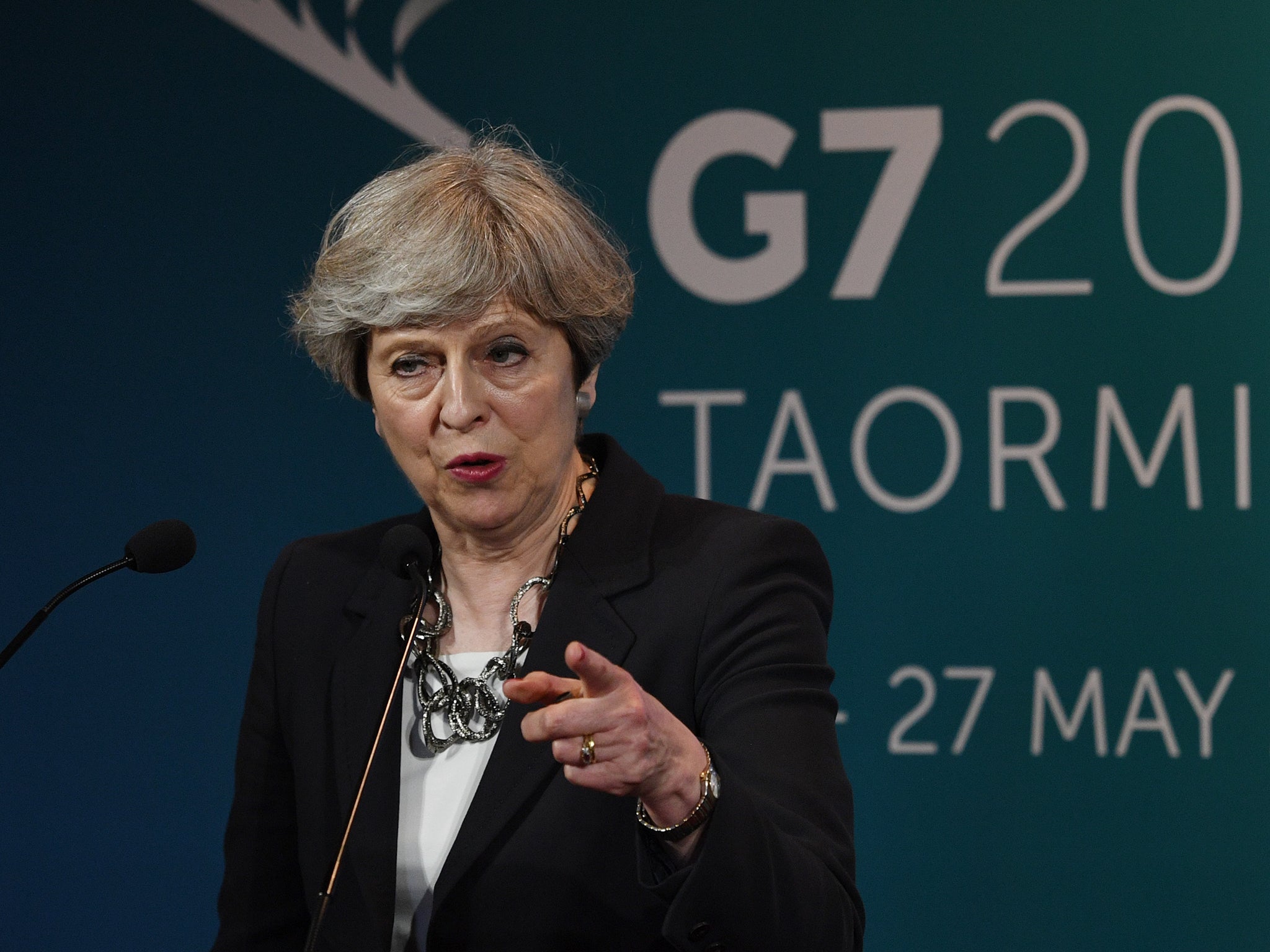The Tories are becoming the 'nasty party' in the eyes of the electorate once again
It was Theresa May who once said the party needed to shake this image, but the Tories’ last few proposals haven’t done them any favours, especially in the eyes of the elderly voters upon whom they so depend

Theresa May memorably observed, at the Conservative Party conference in 2002, that people used to refer to the Tories as the “nasty party”. Under successive leaders, the Tories have sought to erase that image. But it has lingered, and this election campaign has seen them trying their hardest to revive it.
Two policies – abandoning the so-called “triple lock” on the state pension, and initially failing to cap social care costs for the elderly – suggested both an uncaring attitude to retired people in general and an insensitivity towards families struck by the burden of an elderly relative unable to care for themselves. Unsurprisingly, the opinion poll lead of the Tories narrowed dramatically, with Labour now level pegging among women voters and, as our own poll suggests, a majority of people believing that Labour would protect pensioners better than the Tories. This should be alarming news for a party heavily reliant on older voters.
These are unforced errors. The grinding pressure on public finances remains a huge challenge, not just for the next government but for the next generation. There is no escape from that, and the wishful thinking on taxation and spending of both major parties was rightly criticised by the Institute for Fiscal Studies. But, as the IFS pointed out, the proposed modification of the pension pledge would not save that much money, and there is an affordable plan outlined by Sir Andrew Dilnot that would cap the cost of families’ contribution to social care. Public finances do need to be fixed. This was not a clever way, in either financial or political terms, to do so.
This leads to a wider point. Voters, whatever their political instincts and inclinations, have a right to expect reasonable competence. Given the magnitude of the task of negotiating Brexit, that demand is all the more resonant. A potential government that can miscalculate costs and advantages of a key policy shift hardly inspires confidence. One that rapidly switches its position when challenged is not the tough negotiator that it presents itself to be.
Part of the problem seems to be that Theresa May surrounds herself with a small group of trusted advisers, and fails to listen to people whose views and experience radically differ from her own. But the Home Office is very different from government as a whole. The Brexit negotiations will need all the talent and judgement that the country can pull together.
This final full week of the campaign will see the Conservatives reverting to their core argument that Brexit is the “real issue”, and that they are more capable of delivering a good deal with Europe than Labour could achieve. It will shift because that is where they are determined to push it. But the election is not only about Europe; it is also about Britain. What kind of society do we want to become? What should be the real priorities of public spending? What are the proper roles and limits of central government? The narrowing of the polls suggests that Jeremy Corbyn, despite the attacks from his own party as well as opponents, may have a better feel for the underlying desires of the electorate than the Tories give him credit for.
The Conservatives remain the strong favourites to win an increased majority. But they don’t only have to win an election. They don’t only have to deliver Brexit. They have to govern a country in a way that the majority of its people support. They would be wise to recognise that on some major issues such as social care and pensions they are out of tune with the electorate, and more generally for many voters they are still the nasty party.

Join our commenting forum
Join thought-provoking conversations, follow other Independent readers and see their replies